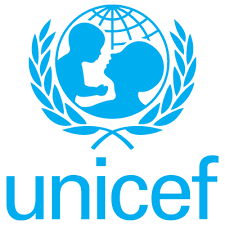According to the United Nations Children’s Fund (UNICEF), enrollment of girls in school has climbed to one point five million in six Northern Nigerian states following the ten-year execution of the Girls Education Project Phase 3 (GEP3).
Mrs Azuka Menkiti, Education Specialist for UNICEF in Nigeria, stated this at the dissemination of findings from the Evaluation of Girls Education Project Phase 3 (GEP3) and the Sustainable Development Goals 4 (SDG4) meeting in Kaduna.
Mrs. Azuka also urged Northern state governors to increase domestic funding for education in order to address other critical issues in the field.
The Education Specialist stressed that the project was implemented from 2012 to 2022 with the goal of improving access, enrollment, retention, and learning outcomes for girls in basic education in Northern Nigeria, specifically in Bauchi, Katsina, Niger, Sokoto, Zamfara, and Kano states.
She further revealed that GEP3 was a collaborative effort between the Foreign Commonwealth & Development Office FCDO, UK, and the Federal Ministry of Education.
Mrs Azuka Menkiti also advised stakeholders in the Northern region’s education sector not to give up on assisting girls to obtain sound and excellent education.
In her address, Hajiya Binta AbdulKadir, Director, Senior Secondary Education Department, Federal Ministry of Education, represented by Mrs Mayo Monica Ogah, Director, Unity Schools Division, expressed optimism that the meeting would result in systemic changes in various states regarding girls’ education.
“I am bold to state that GEP3 was a success in so many ways, as it changed the narrative in our school enrolment and completion at the Basic Education level. Please permit me to peep into the heart of our presenters to say that GEP3 was conceived as a result of the success achieved through the implementation of GEP1 and GEP2.”
“Under these thematic areas, other activities like the Cash Transfer programme, Community engagement (School Based Management Committee- SBMC), Centre Based Management Committee-CBMC, Mothers’ Association all helped to achieve improved access, retention and completion of school.”
In his part, Dr Idris Baba of UNICEF Kaduna field office, indicated that the implementation of the Girls’ Education Programme 2012-2022 in Northern Nigeria has made remarkable progress in reducing inequalities and improving girls enrolment , retention, and learning outcomes in schools .
Dr. Baba stated that the program’s success could only be ascribed to a holistic societal strategy that took into account a wide range of social, emotional, cultural, and economic elements that affect girls’ education.
“UNICEF is grateful for your ongoing partnership and collaboration which allows us to focus on reaching the most marginalized children in Nigeria. As this collaboration continues, it charges us with great responsibility to continuously reflect on whether our efforts are aligned with what the evidence shows to be the greatest needs in this country”
“We cannot fulfill our commitment to ensuring quality, inclusive education for every child unless we commit to getting those who remain out of school into education and ensuring that the education that they receive is high quality and them adequately for the future.”
The participants were drawn from Northern states particularly stakeholders on Basic Education.

